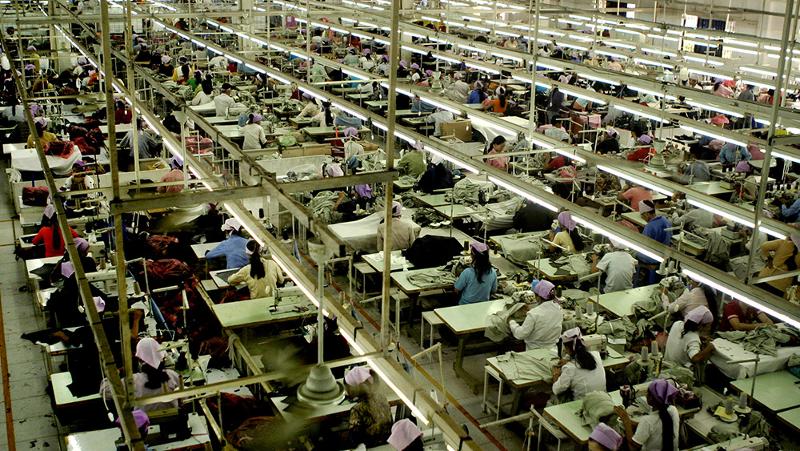
Despite multiple initiatives claiming to support living wages for garment workers in the Global South there is little evidence they have attained a living wage, say QUT researchers.
- Leading fashion houses are aware of lack of living wages for garment workers, who are most often women
- Fashion companies do not use available creditable global initiatives to ensure workers are paid enough to cover the cost of living
- Global South countries’ economies are dependent on keeping wages low to remain competitive against other low wage economies
- Retail price should be calculated from the ‘bottom up’ - from workers’ labour costs
Associate Professor Rowena Maguire and Justine Coneybeer, from QUT Centre for Justice Modern Slavery Research Group, say that to genuinely improve garment workers’ wages, fashion companies must price a worker-centred living wage into their purchase orders at the outset.
Ms Coneybeer said globally many workers were not paid enough to support decent housing, food, healthcare and education costs and, given the gendered nature of garment manufacturing, gender consideration must be factored into living wage calculations and initiatives.
“Despite widespread knowledge of this issue, the lack of a living wage in the garment industry is an ongoing problem with minimal improvements made over the past few decades,” Ms Coneybeer said.

“We studied two rigorous and creditable methods for calculating a living wage for specific countries and conditions - the Asia Floor Wage Alliance and Global Living Wage Coalition.
“However, we found leading fashion companies and their respective living wage initiatives do not actually use any meaningful method to calculate a living wage for their workers.
“Of the three living wage initiatives large fashion companies subscribe to, only the Fair Wear Foundation (FWF) provides a tool to use wage data to price a living wage into a garment’s production costs.
“This bottom-up pricing determines the price of a garment by labour costs not by the target retail price.
“FWF was founded by activists, labour unions and retail associations and attracts small fashion brand members striving to be ethical producers.”
Professor Maguire said that to improve garment workers’ wages, fashion companies must hold themselves accountable by pricing a worker-centred living wage into their purchase orders”
“Fashion companies’ business models rely on exploitative worker conditions and contribute to them by seeking the lowest prices in developing countries,” Professor Maguire said.
“These countries’ economies become dependent on the low wages which, in turn, allows large Global North buyers to dominate prices.
“This power imbalance strikes fear in Global South governments that companies will relocate to cheaper countries and so they suppress workers’ calls for higher wages or unionisation.”
The briefing paper, Evading Responsibility: Living Wage Methodologies and Initiatives in the Fashion Industry, is part of a QUT Centre for Justice Briefing Paper Series on modern slavery and exploitative work practices prepared in collaboration with QUT Centre For Decent Work and Industry and QUT Centre for Justice.
This paper is based on research by Ms Coneybeer and Professor Maguire and published as Evading responsibility: a structural critique of living wage initiatives and methodologies in the open access International Journal for Crime, Justice and Social Democracy.
QUT Media contacts:
Niki Widdowson, 07 3138 2999 or n.widdowson@qut.edu.au
After hours: 0407 585 901 or media@qut.edu.au.




